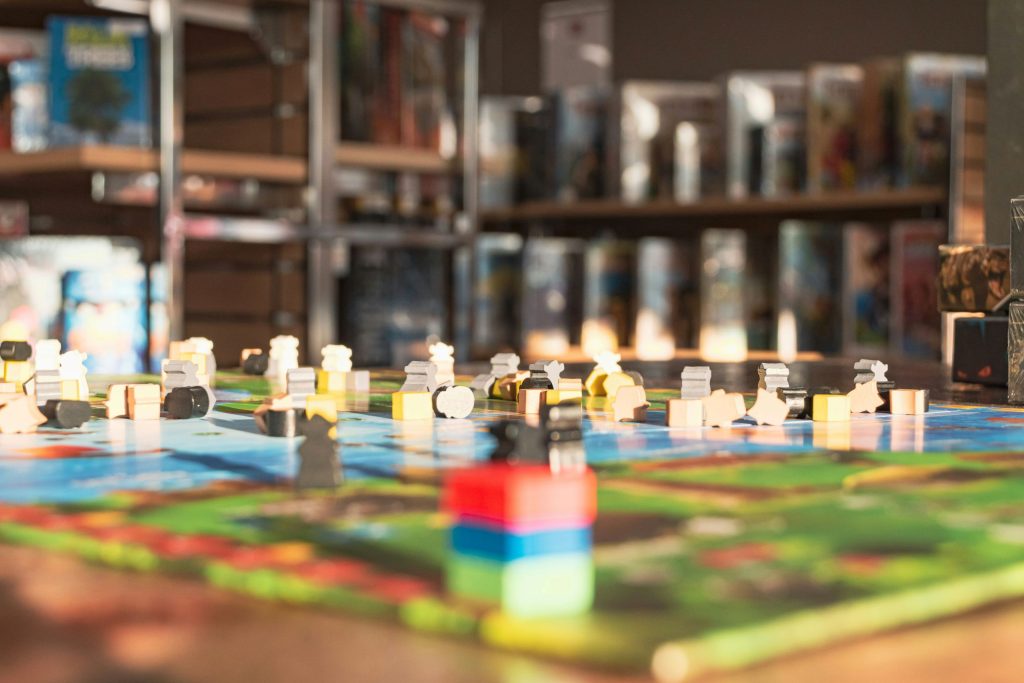For gamers, walking into a local game shop is more than just a shopping trip—it’s a ritual. The smell of fresh card packs, the click of dice in their trays, the hum of friendly conversation—it’s where the hobby comes to life. But local game shops haven’t always been the bustling community hubs we know today. Their history stretches back decades, growing alongside the games they sell.
From Hobby Corners to Dedicated Stores (1960s–1980s)
The roots of the local game shop can be traced to small hobby and toy stores in the 1960s and 70s. Back then, tabletop gaming meant board games, model kits, and war games like Risk and Axis & Allies.
In the 1970s, a revolution hit the tabletop world: Dungeons & Dragons (1974). This role-playing game created a need for a different kind of store—one that stocked not only games, but dice, rulebooks, miniatures, and terrain. Shops that carried D&D became gathering spots where players swapped stories, shared adventures, and recruited for campaigns.
The Rise of the Trading Card Game Era (1990s)
In 1993, Magic: The Gathering changed the game—literally. Its collectible card model encouraged repeat visits, trading, and organized play. Local game shops that embraced card games soon became hubs for Magic tournaments, Yu-Gi-Oh! duels, and Pokémon battles.
During this era, the Friday Night Magic tradition was born, creating a weekly ritual for players to connect with friends and compete in a welcoming environment.
The LGS as a Community Hub (2000s–2010s)
By the 2000s, the modern LGS had taken shape. These stores offered:
- Play space for tournaments, campaigns, and casual hangouts
- Events like prereleases, leagues, and painting nights
- Expert advice from staff who knew their games inside and out
As board games surged in popularity during the “modern board game renaissance,” LGS shelves expanded to include titles like Catan, Ticket to Ride, and Gloomhaven.
These shops weren’t just retailers—they were third places (social spaces outside of home and work) where friendships formed and communities thrived.
Challenges and Adaptations (2020s)
The pandemic forced many local game shops to rethink how they operated. Online orders, curbside pickup, and even virtual tournaments became essential. Those that survived often did so thanks to loyal customers rallying to support them.
Today, LGS owners balance in-store play with online sales, streaming events, and hybrid communities that meet both physically and digitally.
Why Local Game Shops Still Matter
Even in a world where you can buy almost any game online, the LGS offers something the internet can’t:
- Face-to-Face Play – You can’t roll dice together over Amazon.
- Community Events – From Magic prereleases to D&D one-shots, the LGS is where new players find their first game group.
- Expert Guidance – Need a gift recommendation or help building a deck? Staff and fellow gamers are there for you.
- Local Economy Support – Every dollar spent at your LGS helps keep your neighborhood vibrant.
Final Word
The local game shop is more than a store—it’s a cornerstone of tabletop culture. It’s where strangers become friends, where players learn and grow, and where the love of the game is kept alive. The next time you walk into your LGS, remember: you’re stepping into decades of gaming history and helping write the next chapter.

